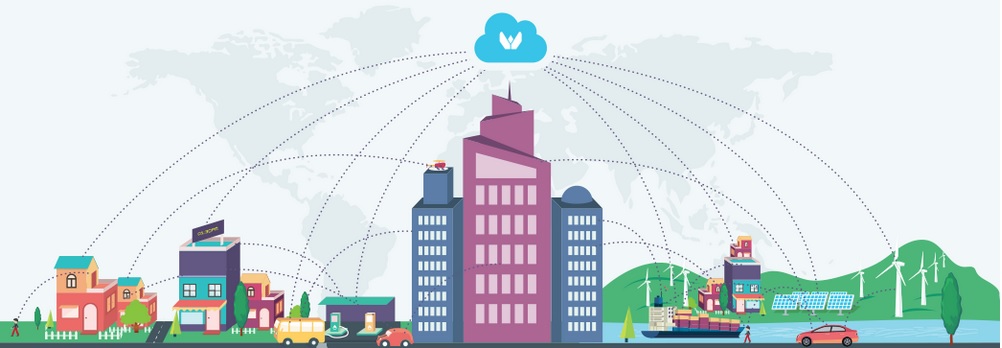Cities driven by the Internet of Things facilitate social benefits to the citizens and greater economic growth in a sustainable way. The urban space comprises transportation, healthcare, utility, office buildings, residential area, and more. The key to a smart city is the real-time integration of inter and intra sectors with varied protocols/devices, and achieve interoperability between complex partner systems. All these smart devices use a host of connectivity like Wi-Fi, Zigbee, Bluetooth, WLAN, and mobile broadband technology.
Sensors can monitor and manage almost any facet of an urban environment from weather, pollution, energy, traffic flow, parking, water, garbage, and more. For instance, Smart Billboards improve public safety by providing real-time traffic updates or warning them on unfavorable weather conditions. Smart Garbage battle environmental issues and spiraling recollection costs. Smart Water measure water quality and provide a complete picture of how nutrients and contaminants are spread.
Device data when coupled with other applications creates myriad possibilities. Smart Parking integrated with connected car locates parking space at ease and pays parking fee through the app. Convergence of smart city and smart grids improve energy efficiency, enhance grid security, and optimize energy distribution process. Advanced smart metering benefit citizens to manage energy consumption, and also allow utilities to transform their service model from managing energy flows to include value-added services like time-based pricing. IoT enabled household appliances allow consumers to take advantage of time-based rates, by dropping energy consumption during peak hours.
In case of telecom towers, escalating operating costs and downtime are daunting for telecom operators. On many times inaccurate alarms results in notifying wrong vendor and dispatching field technician without prior information on potential failure. IoT enables energy efficiency in cell towers and brings transparency within the supply chain and avoids expensive remote site visit, and SLA penalty. Intelligent telecom towers coupled with big data provide a complete overview of the asset performance, alarm status, energy usage, and proactively notifies the field technician with precise problem.
In order to realize an effective smart city project, an IoT Platform have to be to robust and adhere to open standards that can scale tens of thousands of devices, handle multitude of device data, and support seamless application development. With increasing privacy concerns and security treats, the platform must also protect the integrity of massive IoT traffic end-to-end.
For more information about the WebNMS IoT Platform, please visit: http://www.webnms.com/m2m/webnms-iot-platform.html
